
Maintaining medical care in a place like the al-Hol camp with tens of thousands of people is a more than challenging task. For four years we have taken it on with our colleagues on the ground – now they have taken over the hospital. Photo: CADUS
Humanity in one of the toughest places in the world – Looking back at four years of CADUS Field Hospital at Camp Al Hol
On June 30, 2023, the time had come: CADUS left Camp Al Hol, where we built up a field hospital and supported the camp’s internal rescue control center, forever. But we know that the Field Hospital is in good hands: our staff members on the ground have founded their own organization and took over the management. It’s time to look back on four challenging years in Northeast Syria, during which we have struggled a lot, but also learned a lot.
How Al Hol became a dangerous place
When we started working in Al Hol in 2019, it served as an IDP camp: a camp for Internally Displaced Persons, people who are forced to leave their homes and find temporary refuge in the camp. But many who now experience the reality on the ground on a daily basis increasingly use the term Detention Camp: a prison camp whose humanitarian character is visibly being lost due to restrictive security measures, ongoing violence and permanent lack of supplies.
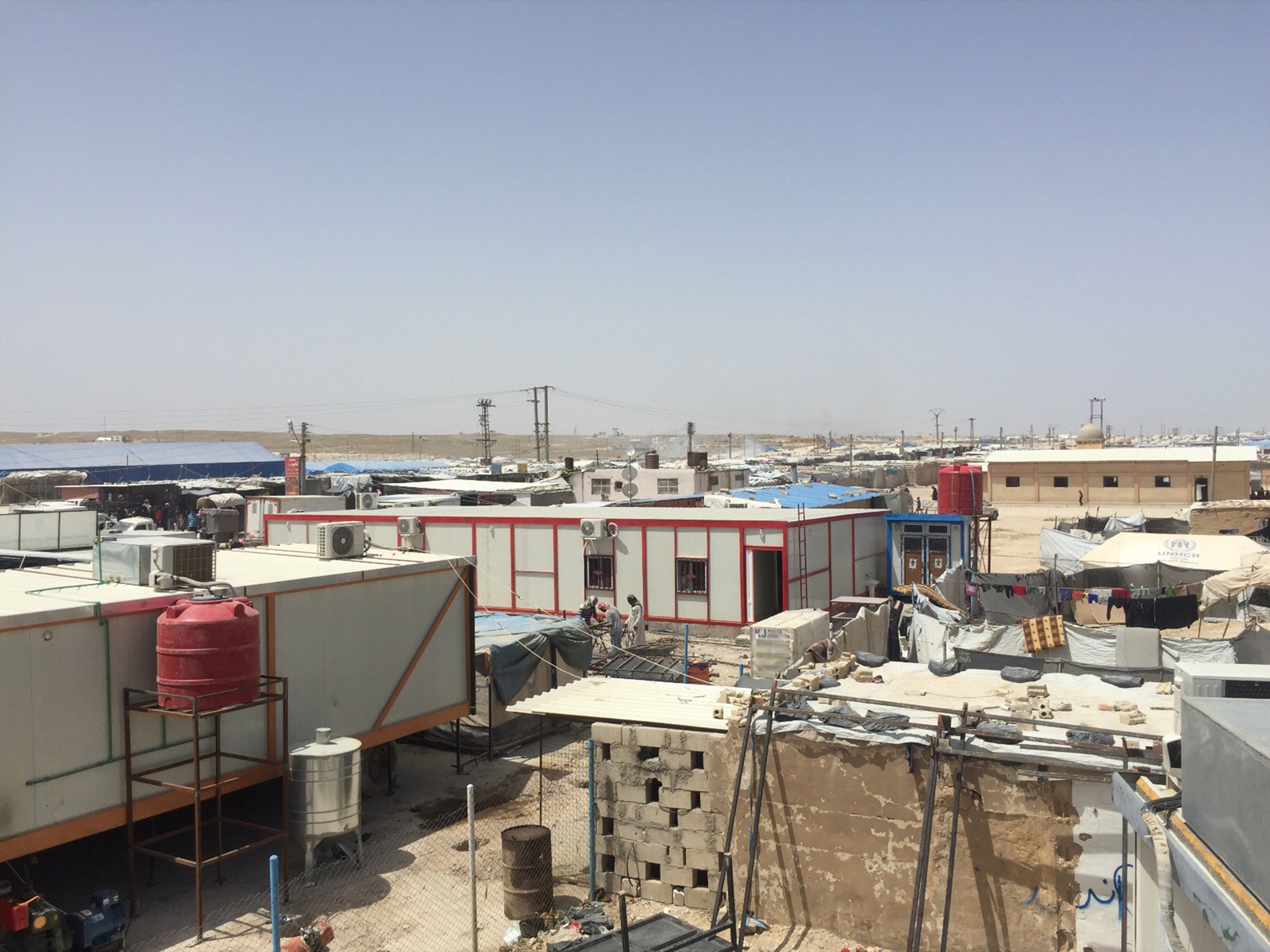 A place of humanity in a dangerous place: in this tough environment, our hospital continues to support the people in the camp after our handover to the Șîlêr organization. Photo: CADUS
A place of humanity in a dangerous place: in this tough environment, our hospital continues to support the people in the camp after our handover to the Șîlêr organization. Photo: CADUS
The current situation has arisen from the rapid growth of the camp when the so-called Islamic State (IS) was driven out of Baghuz, its last stronghold in Syria, in early 2019. Thousands of families fleeing the fighting, as well as the families of defeated IS fighters, were housed in Al Hol. Originally established during the 1991 Gulf War, the camp grew from 10,000 to nearly 75,000 people in a matter of weeks. The infrastructure quickly became overburdened, and tensions developed within the camp population. Currently, there is a high level of crime, and the increasingly assertive security forces are becoming another party to the conflict as a result.
Although the population is slowly decreasing and currently numbers around 55,000, many countries still refuse to take back their nationals from the camp. Taking care of these people is left to the AANES (Autonomous Administration of Northeast Syria), which for years has had to both stand up to Syria’s Assad regime and fend off invasions from Erdogan’s Turkey in a grinding conflict. It is hardly surprising that the camp’s population, consisting mostly of women and children, suffers from an, suffers from an extreme lack of perspective.
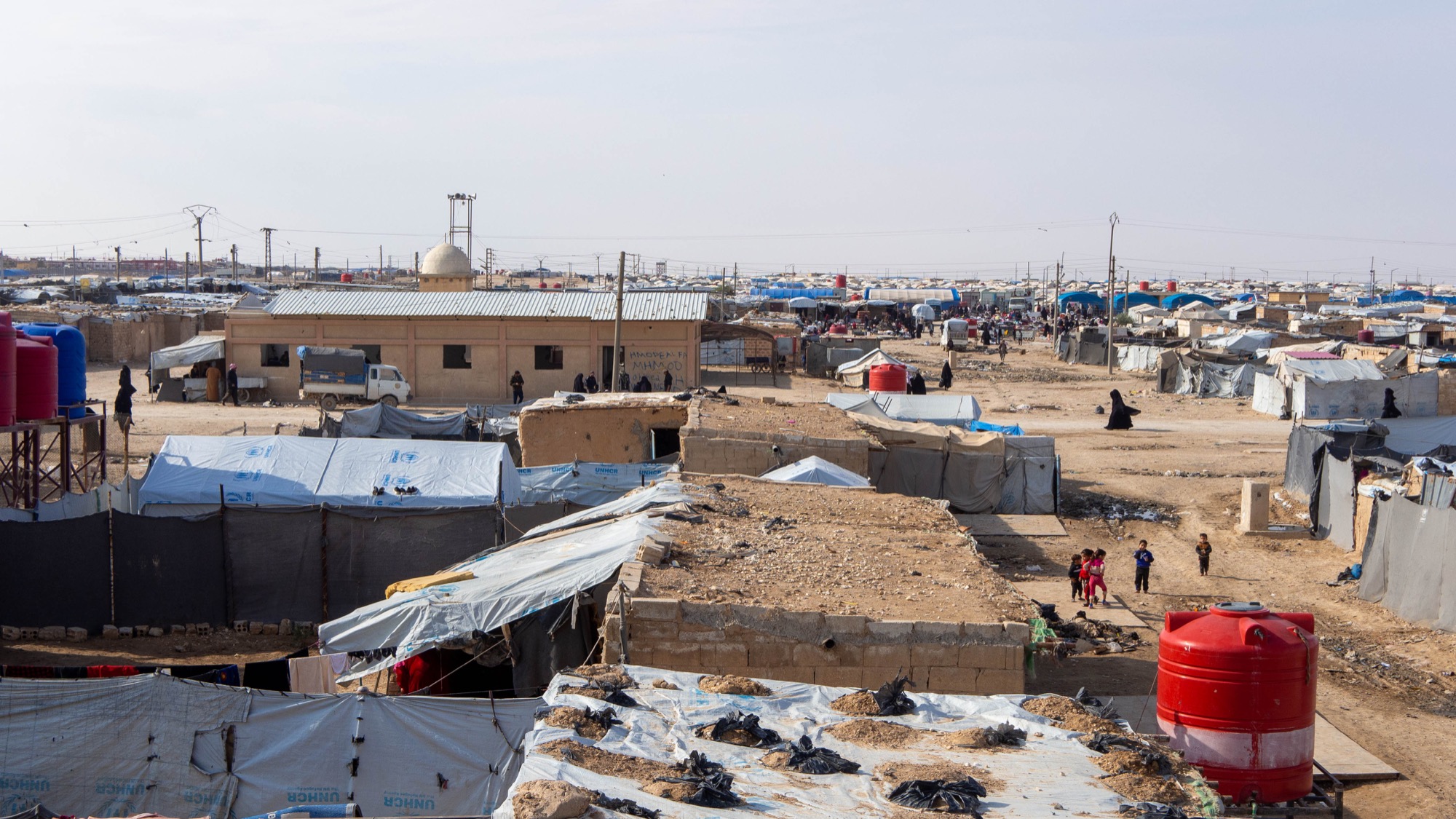
Within a very short time, the camp grew 7-fold and, with over 75,000 inhabitants, was as large as a medium-sized German city such as Marburg. Photo: CADUS
How CADUS came to be involved in Camp Al Hol
CADUS has been active in Northeast Syria since late 2014. In early 2019, we were in the midst of planning a new Trauma Stabilization Point (TSP) to stabilize severely injured patients for onward transport to hospitals. Due to the critical and ever-escalating care situation in the rapidly growing Al Hol camp, WHO asked us to drop this plan and instead support the development of the field hospital.
We agreed and in cooperation with our long-term partner organization, the Kurdish Red Crescent (KRC), we built the field hospital. KRC was responsible for the operational management and also provided the medical staff. Initially, our tasks were mainly at the administrative level. We also provided support in the medical field for specialist issues and covered the area of WASH (Water Sanitation and Hygiene).
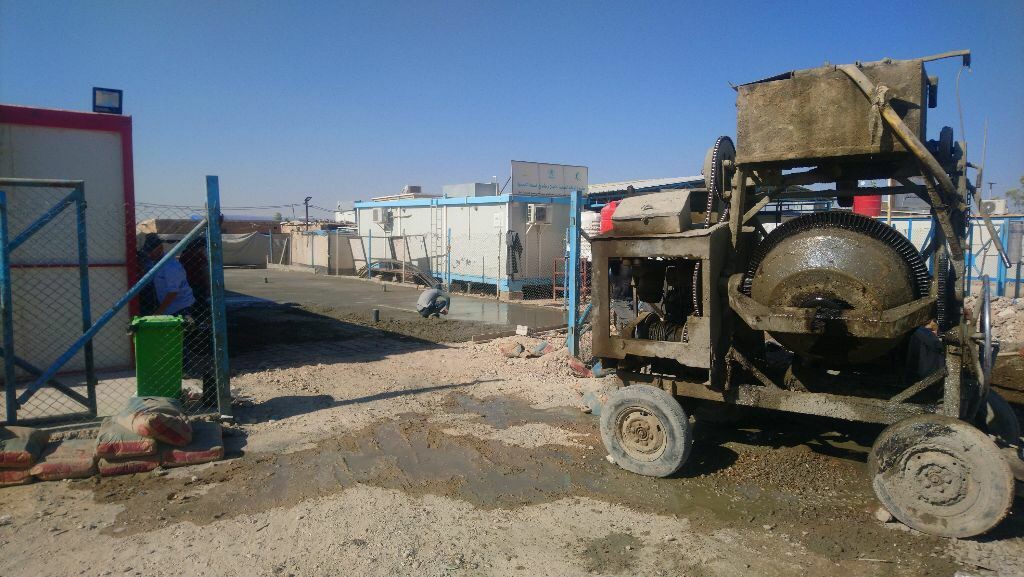 The hospital was built in several construction phases. On the left with red frame the first part already in use, on the right the foundation for the second construction phase. Photo: CADUS
The hospital was built in several construction phases. On the left with red frame the first part already in use, on the right the foundation for the second construction phase. Photo: CADUS
In June 2019, the first part of the modular, containerized hospital was completed and started operations. After two months, operational management transferred from KRC to CADUS. Fortunately, we were able to take over the entire medical team. The Kurdish Red Crescent remained in our neighborhood: right next to the hospital, KRC provides basic medical care in their clinic and refers more complicated cases to us. And our patients come not only from there, but from all areas of the camp.
Medical care with obstacles
Since its completion in September 2019, the Field Hospital offers 30 beds, an intensive care unit, an isolation unit, and X-ray. Surgery can be performed under general anesthesia. We are the only medical facility in the camp to offer permanent patient admission around the clock. The camp’s ambulance dispatch center (operation desk), with a total of six ambulances, was also operated jointly by CADUS and KRC until the end of 2022. After that, KRC took over operations completely. The Operation Desk ensures efficient transfer and optimal utilization of the camp’s medical facilities. From there, referrals to hospitals outside the camp are also organized.
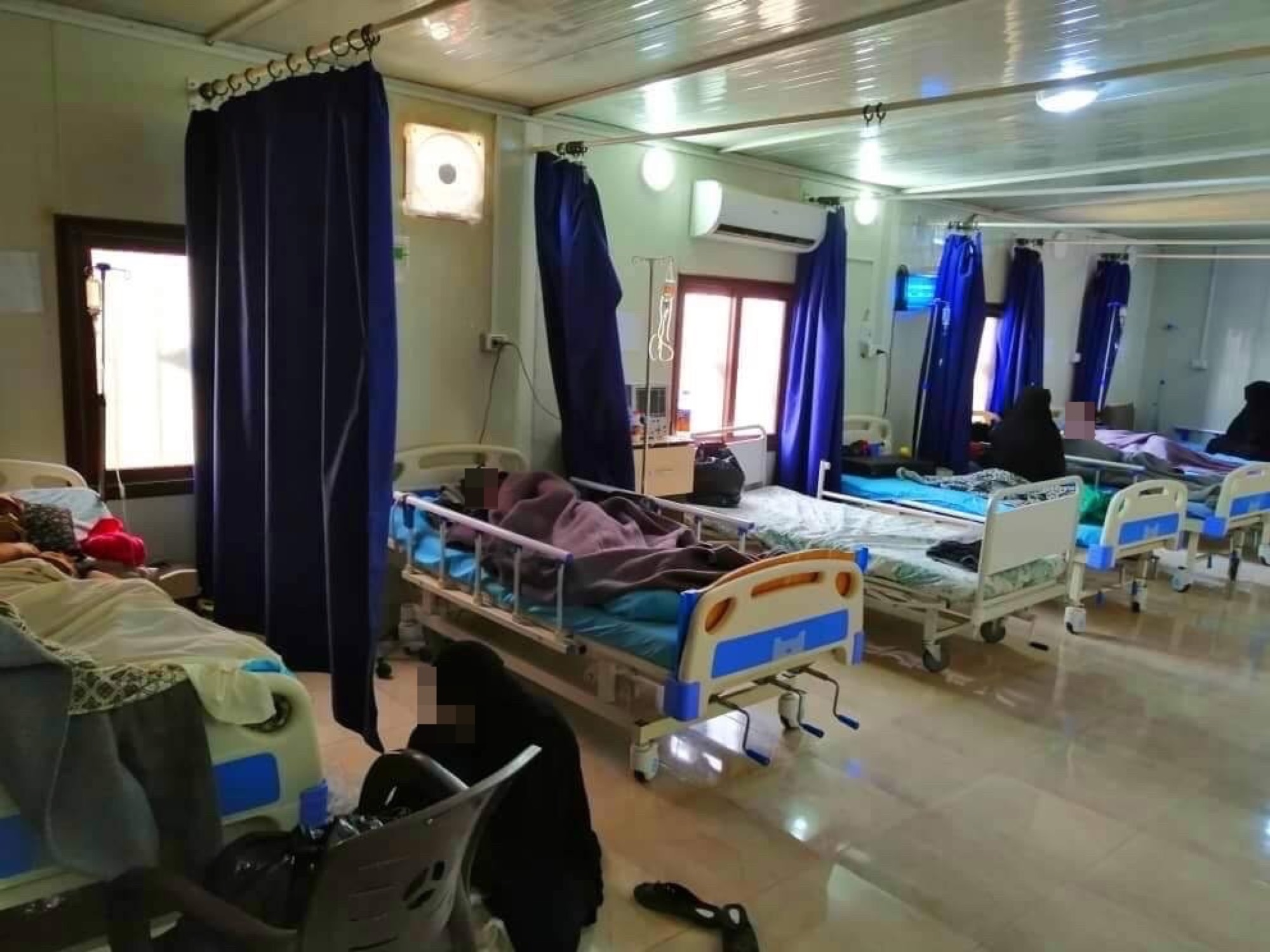 The hospital is one of the most important pillars of medical care in the camp and is always well utilized. Photo: CADUS
The hospital is one of the most important pillars of medical care in the camp and is always well utilized. Photo: CADUS
This is no easy task: the camp administration sets ever higher administrative obstacles before patients are allowed to leave the camp. CADUS has been a strong advocate in this regard, always trying to keep the camp open from a medical perspective and to allow residents to leave in urgent cases. For the people in the part of the camp called “Annex”, treatment in our field hospital is now also possible. However, their access to medical care remains severely limited, and transfer outside the camp is rarely permitted, even in cases of life-threatening emergencies.
Media and Humanity
The Annex houses so-called third-country nationals: those who came from other countries to join IS. The fact that many former supporters of the so-called Islamic State, as well as some suspected current followers of the ideology, are housed in Al Hol, has repeatedly earned the place the name “terror camp” in the international press. This has not left CADUS unaffected. Comments appeared on social media that were derogatory towards our newest patients and criticized us for supporting them.
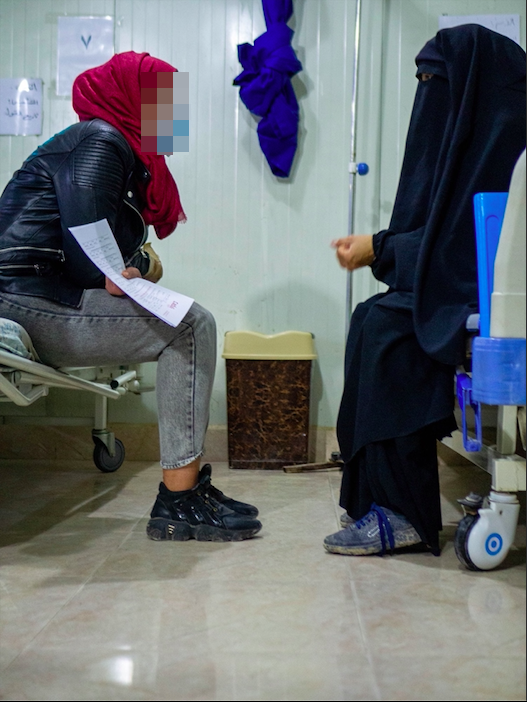
Despite the controversies and difficult conditions on the ground, we, and especially our local colleagues, continued our important humanitarian work. Photo: CADUS
But for us it was clear: our humanitarian mission is to help people in emergency situations, not to judge them. With the field hospital, we have created a place of humanity and respect in one of the toughest places in the world, and have received so much in return from our patients and colleagues.
Suddenly the attack
As we moved around Northeast Syria, we were reminded every day that we are in a militarized conflict zone: there are always armed roadblocks, so-called checkpoints, to pass. Sometimes you meet a U.S. convoy, and sometimes a Russian convoy. Never move alone, but always with drivers who know their way around. Know which streets are controlled by whom, and where you should never make a wrong turn. This may sound crass to some, and yet it quickly becomes the normality in which you live together with all the local people.
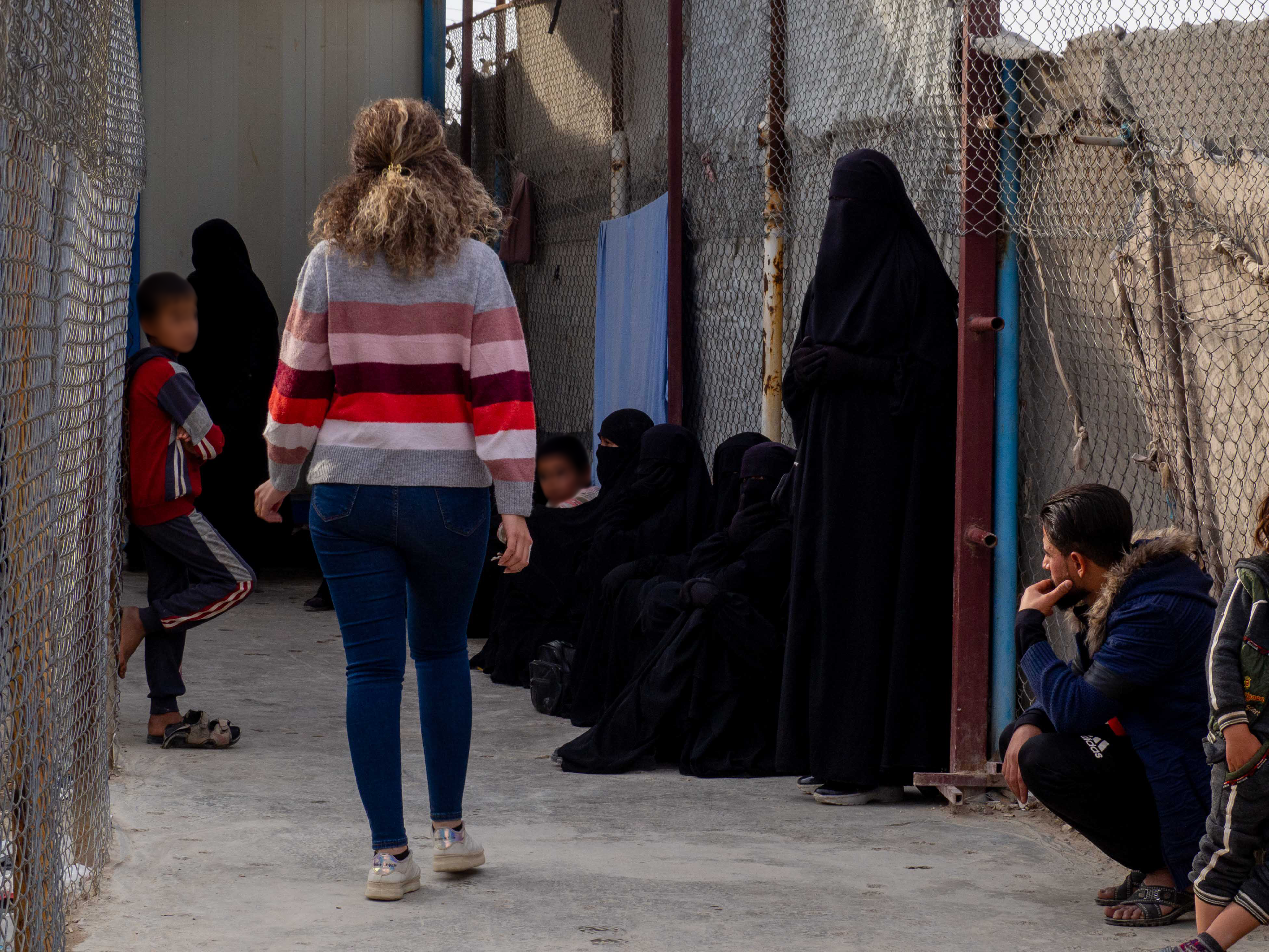 Women wearing full-face veils and Western clothing side by side – an image that is soon normal in al-Hol. Photo: CADUS
Women wearing full-face veils and Western clothing side by side – an image that is soon normal in al-Hol. Photo: CADUS
In October 2019, everything suddenly changed: in a major offensive, Turkey attacked the north of Northeast Syria in order to push the border of the territory they control further south. The attack was mainly aimed at the Kurdish part of the population, and had its origins in domestic political developments in Turkey. But everyone who lived in the attacked area was affected. At the time, part of our team was housed in Tal Tamar, which is located exactly on the border of the area designated for occupation by Turkey.
Our team acted quickly: we offered support to the local hospital to treat those who were injured during the flight. And we organized the distribution of food pacts to those fleeing. When the fighting became too intense, we had to retreat to Hassakeh. But when there were airstrikes there as well, a hard decision was taken: the internationals from the CADUS team had to leave Northeast Syria. This was certainly one of the most bitter moments in our history, and it made us aware of our privileges as humanitarian aid workers. Because as much as we want to work on equal footing with everyone on the ground, if things get too tough, we can leave.
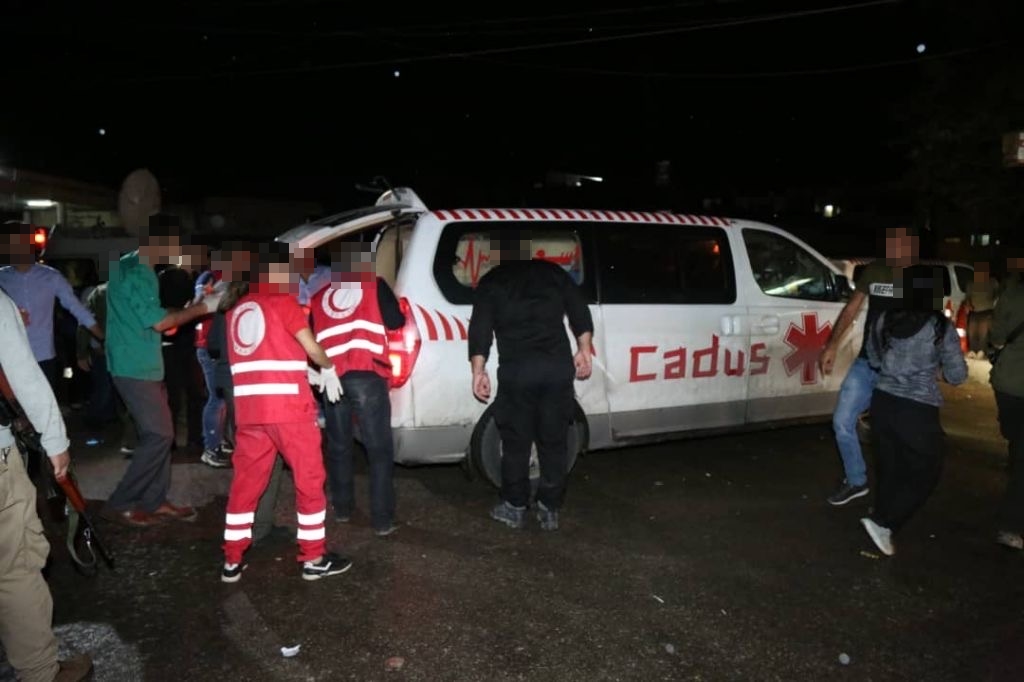
During the Turkish offensive, we supported our brave colleagues from Heyva Sor and the Syrians affected by the attacks wherever we could. Photo: CADUS
While our internationals drove across the border into northern Iraq, our colleagues on the ground kept the field hospital open. With only a third of the usual staff, as the rest were needed directly on the front lines or in other hospitals. A CADUS-funded ambulance ambulance came under fire near the front line, and the driver and one medical staff member survived severely injured.
Just when we thought it couldn’t get any worse – the year 2020
The joy of being able to re-enter the country after the Turkish attacks were pushed back was soon marred by the latest developments. In January 2020, the UN passed the Cross Border Resolution, declaring the border crossings between northern Iraq and Northeast Syria illegal. Access should now only be possible via Damascus in Syria. A development that strengthened the Assad regime’s position of power. But for us as an organization working in Northeast Syria, registration in Damascus was out of the question. CADUS abruptly lost WHO funding for the Field Hospital and we had to look for a new grant. Fortunately, a solution was found and we were able to continue the project without interruption thanks to funding from a new donor.
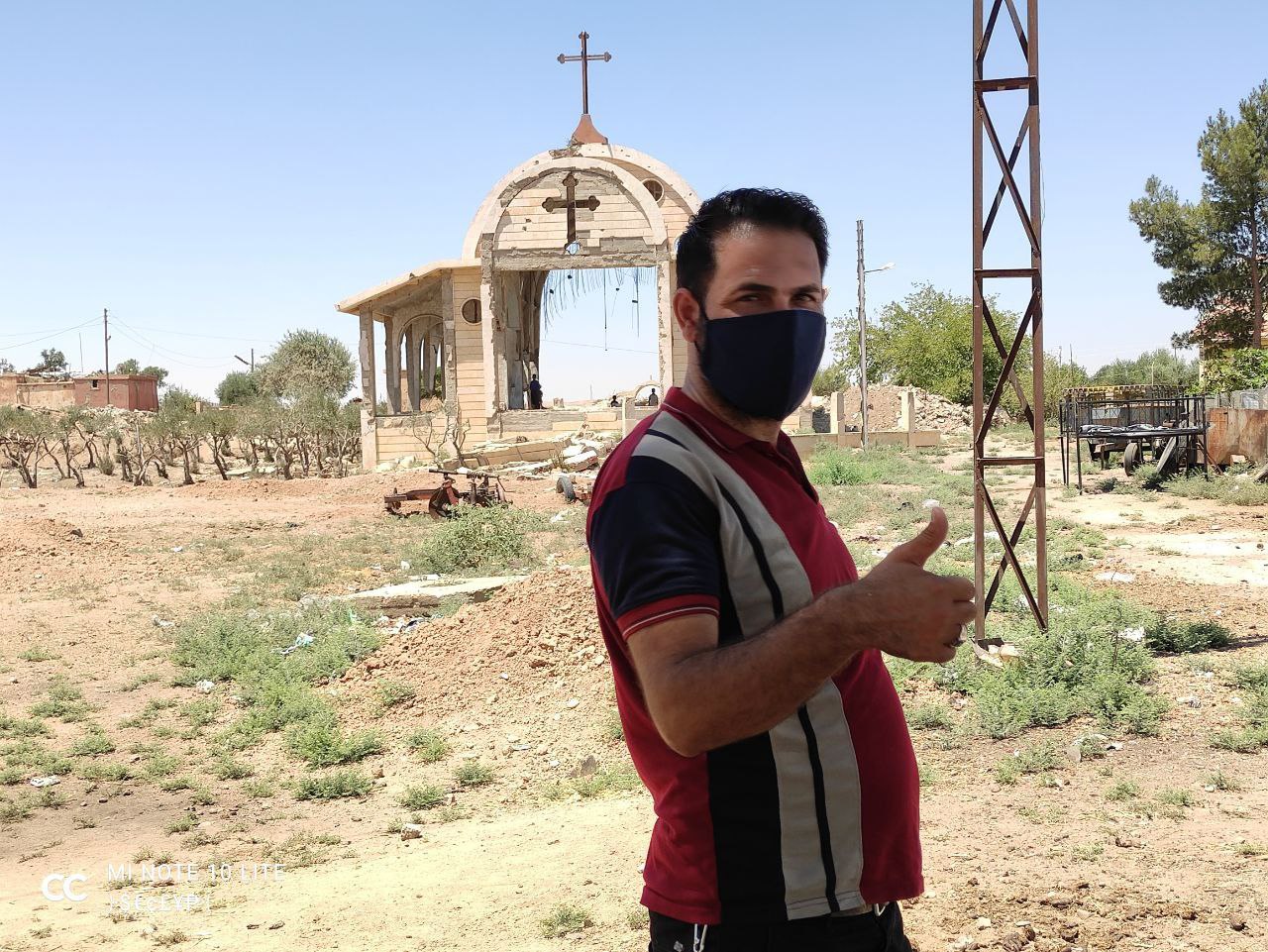 With our mask production we were able to create an income for the seamstresses and at the same time contribute to the prevention of infections. Photo: CADUS
With our mask production we were able to create an income for the seamstresses and at the same time contribute to the prevention of infections. Photo: CADUS
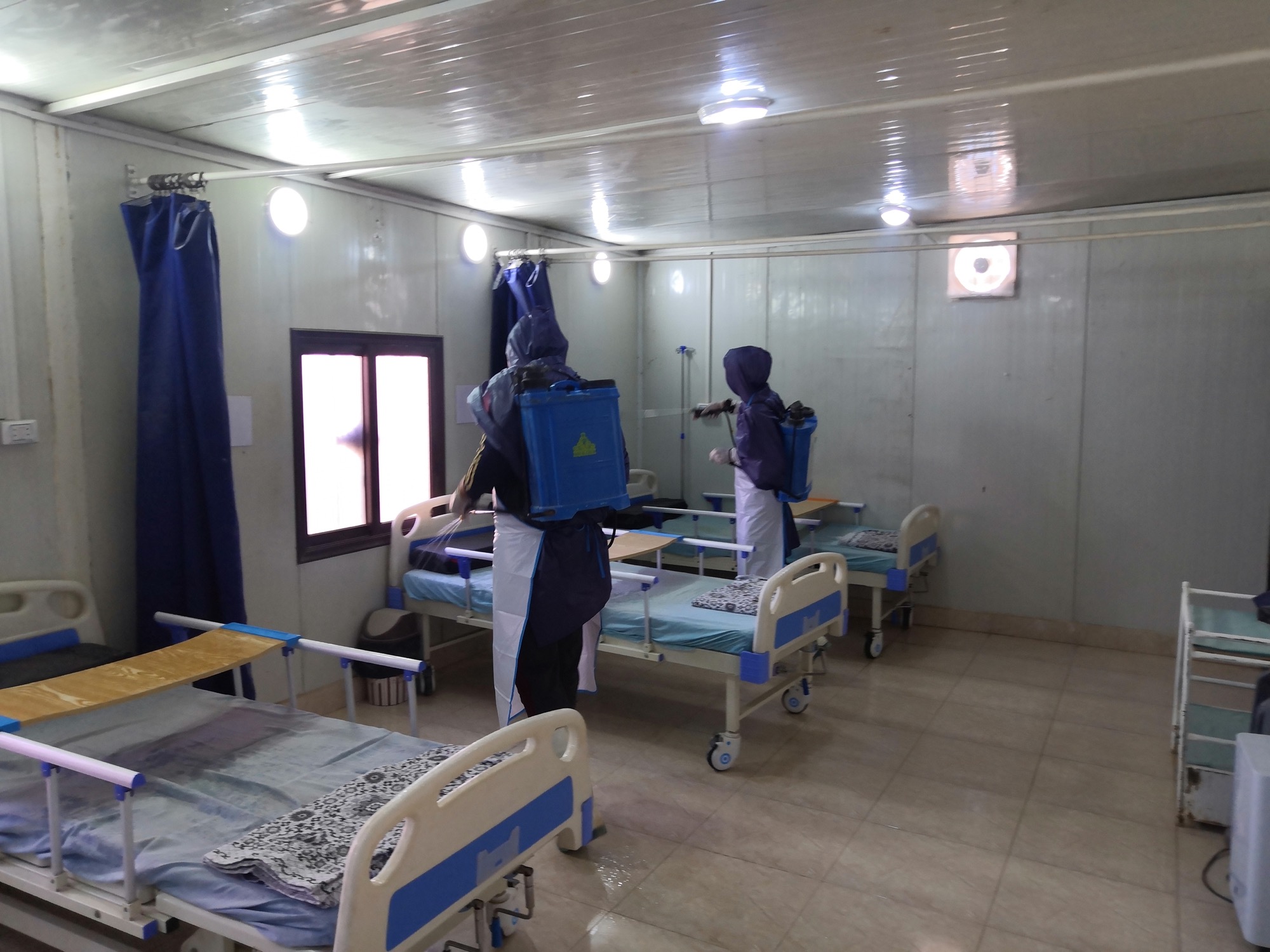 With a quarantine station and regular disinfections, we have been able to combat the risk of Corona infection and thus keep our hospital largely open. Photo: CADUS
With a quarantine station and regular disinfections, we have been able to combat the risk of Corona infection and thus keep our hospital largely open. Photo: CADUS
Then came COVID19. We set up a separate isolation ward in the field hospital, and began a small side project of producing cloth masks locally and distributing them throughout the region as part of hygiene training. Then in August 2020, one of our members of staff tested positive. As a result, we closed the Field Hospital for two weeks to prevent bringing the virus into the camp. Tragically, several deaths of children during this period can be directly attributed to not having access to the Field Hospital.
The year 2020 concluded with a break-in at our Hassakeh office, in which a large amount of money was stolen and we faced severe cash flow problems. Fortunately, the case was solved and the money recovered, but it was a long and nerve-wracking road until then.
No end to the violence
Murders have become both a frequent means of settling conflicts and a common way of playing politics in Al Hol camp. https://www.savethechildren.net/news/insomnia-nightmares-and-wanting-die-toll-witnessing-violence-al-hol-s-children
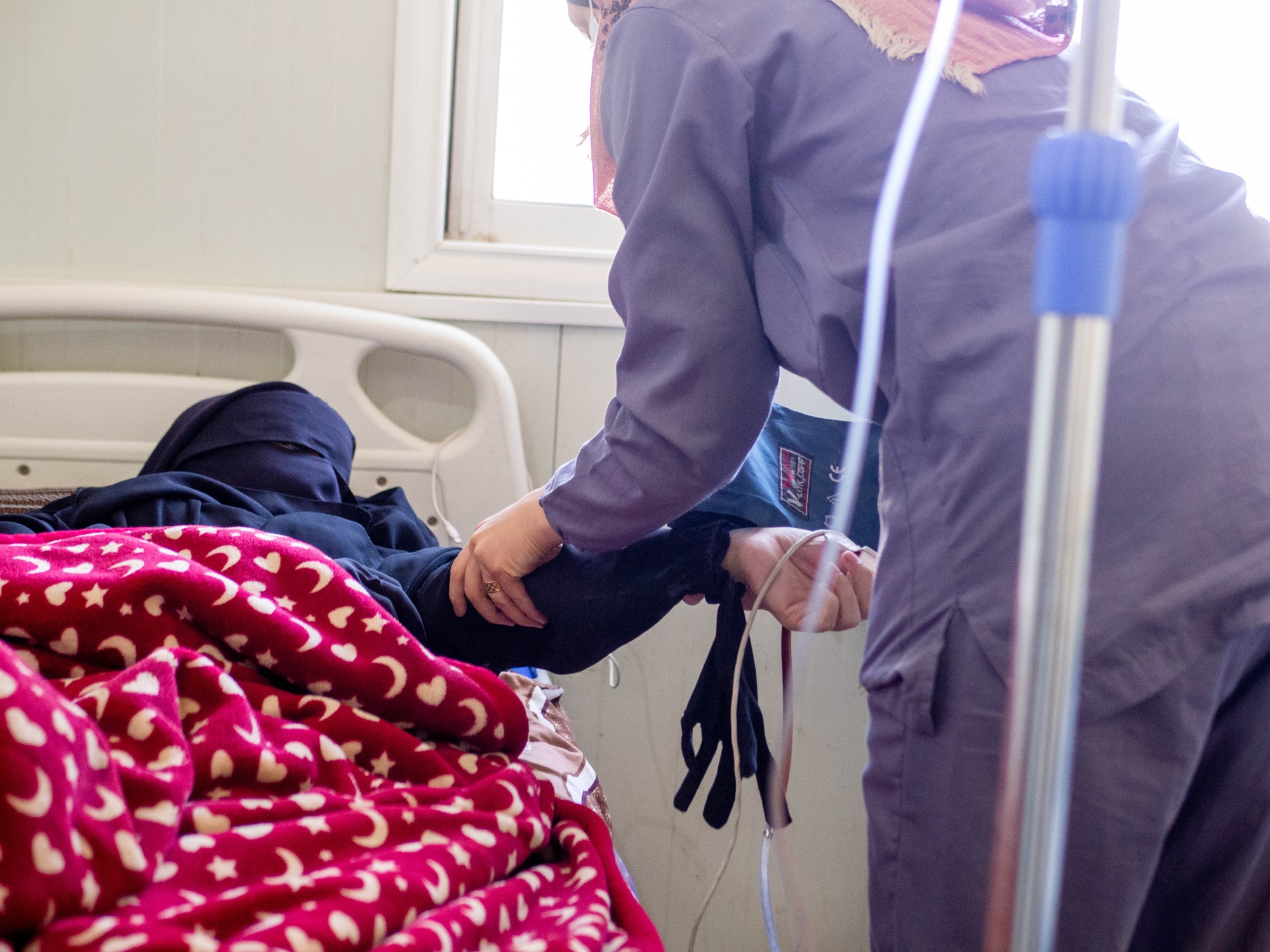 Our greatest respect goes to our colleagues on ground who always cared for their patients despite the personal risks. Photo: CADUS
Our greatest respect goes to our colleagues on ground who always cared for their patients despite the personal risks. Photo: CADUS
In January 2022, a paramedic from our partner organization KRC is shot dead a few meters from our field hospital. Our team is shaken, scared and grieving. A week later, the situation escalates further when IS attacks the prison in Hassakeh in a liberation operation. Many NGOs evacuate their staff, but the Field Hospital remains operational. This is only possible because CADUS works closely with organizations like KRC and is in close communication with many local hospitals.
An end and a beginning
After four years of Field Hospital Al Hol, CADUS is firmly established in the region, considered a reliable partner, and a popular employer. And yet astrategic decision has been taken to withdraw from the region. This is not easy, some of us have given a lot to build up projects like the Field Hospital.
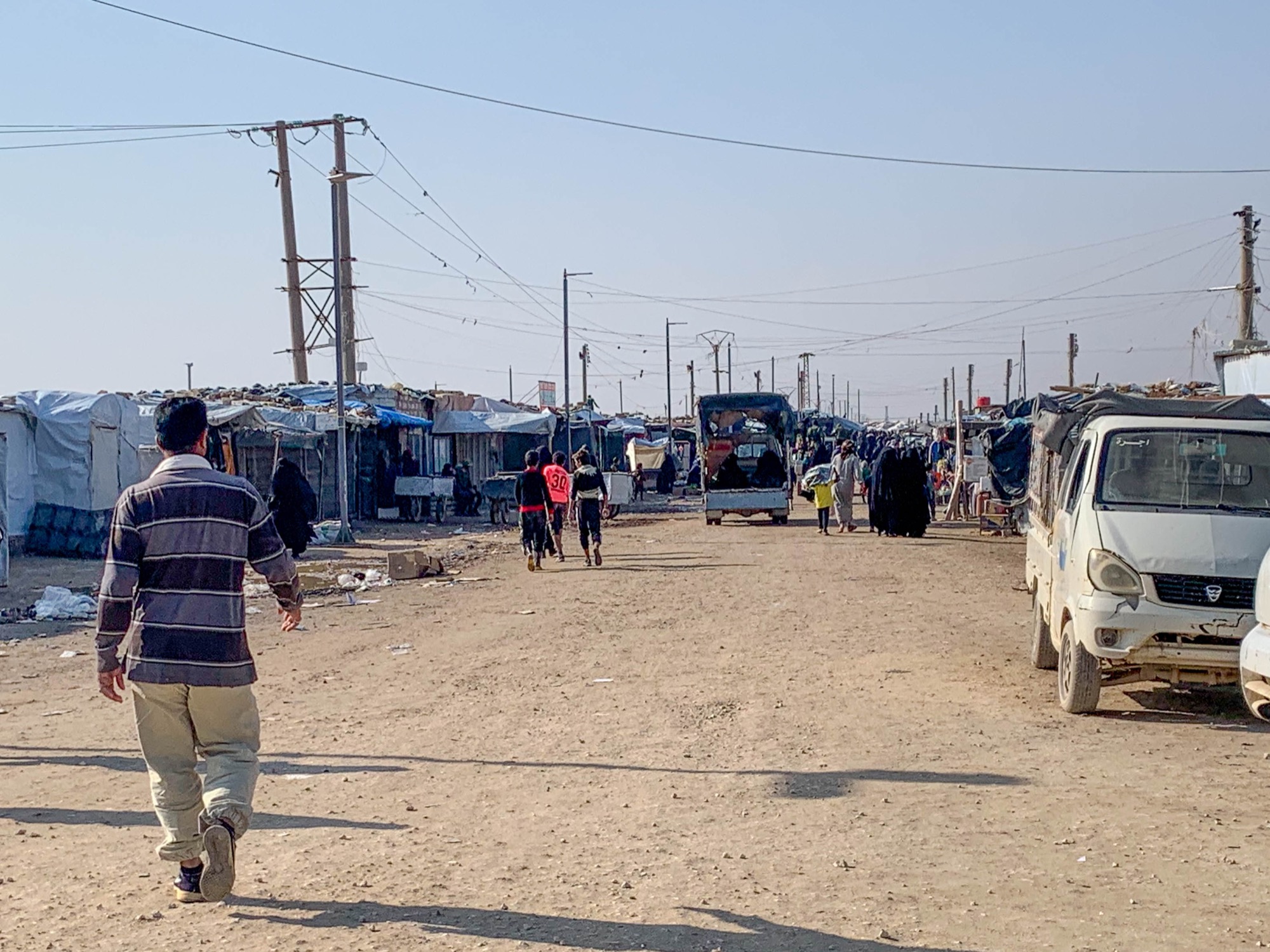 Șîlêr, the residents of the camp and the region still have a long, rocky road ahead of them to a hopefully peaceful future. Photo: CADUS
Șîlêr, the residents of the camp and the region still have a long, rocky road ahead of them to a hopefully peaceful future. Photo: CADUS
And yet, at the end of the day, we only “handed over to ourselves”, so to speak. For a long time now, it has been our regional colleagues who have kept the hospital running. At least for once, we have achieved what should be the goal of all humanitarian aid organizations: we have made ourselves superfluous. The new organization is called Șîlêr Crisis Response (SCR), is already fully registered and recognized, and can also take over funding from CADUS.
We wish Șîlêr success with all our hearts and thank our staff on site for four intensive and educational years.
Published:
Author: by Corinna Schäfer
By CadusPR
Stay informed about our missions, events and humanitarian emergency aid topics – with our newsletter!
Newsletter registration
I want to unsubscribe from the newsletter.



